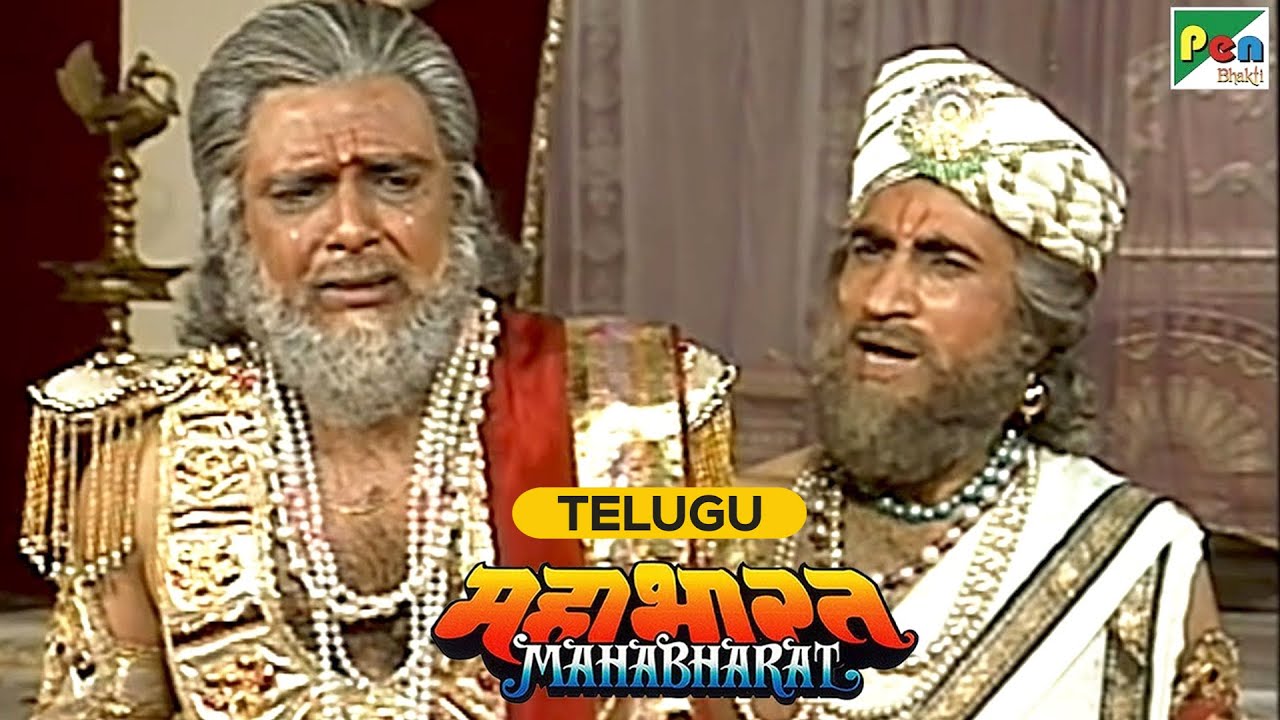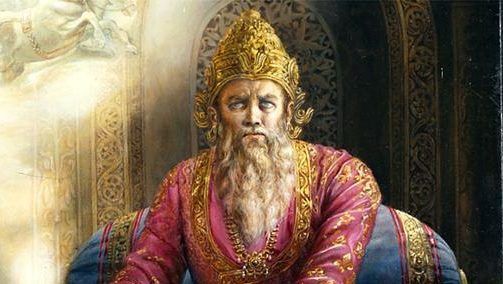
Dhitarastrya in Mahabharata : A Character Sketch

Dhitarastrya: Burned by Bitterness, Attachment and Blindness
Our lives are filled with interesting characters. They have virtues. They have vices. They can sometimes be inspirational, while at the same time ironical.
Beyond viewing them through the narrow lenses of heroes and villains, good or evil, characters in themselves are unique and come in different shades.
Unlike our popular imagination characters don’t perfectly fit in the “good” or “bad” category. Sometimes they can be idealistic, while at different scenarios, they can turn selfish and pragmatic.
Each character is a rainbow in themselves. There is the great, the good, the bad and the ugly all within the same heart and mind.
Mahabharata, is one such epic that is full of interesting characters. If we look religion beyond way of life and identity and more towards wellbeing and wisdom, even characters can turn lively and fascinating!
Apart from being the fountainhead of Bhagwat Geeta, Mahabharata is an epic that celebrates roles. The role of a King, the role of a teacher, the role of a friend, the role of a son, the role of an advisor, and much more.
As a kid, I enjoyed B.R. Chopra’s Mahabharata series. Fortunately, I got to revisit them again, and this is when I thought of doing some character sketches.
As a disclaimer, these character sketches are done out of my own personal passion viewed through my lenses. I, do not hereby claim any sort of legitimacy from scriptural point of view. The character sketch is largely based on as portrayed in the series.
Dhitarastrya is another iconic, debated character of Mahabharata often presented as the sole antagonist of the war.
1. A Happy Kid Does Not Necessarily Make for A Good Father
The relationship between Duryodhana and Dhitarastrya is a fascinating father-son relationship like the relationship between Bhisma- Shantanu, and Dhronacharya-Aswasthama. Father-son relationship is one of the most important relations of life and every father-son relation in Mahabharata is unique in its own dimension.
Dhitarastrya wants his son Duryodhana to be a happy child, but the question is does this necessarily make for a good father?
Dhitarastrya is not only attached, but blinded by his love for his son Duryodhana. Not only does the series portray him as a father unable to impart values to his son, but also an as unsuccessful parent, who cannot say “No” to the illegitimate demands of his son.
As a result, at the end of the war, Dhitarastrya loses all his sons and grandsons but one. Dhritarashtra's only daughter Duhsala gets widowed, and his favorite son Duryodhana is no more.
Unknowingly, out of good intension due to blind attachment, Dhitarastrya plots the fall of his own 100 sons and thousands of others of Hastinapur.
Dhitarastrya provides a father an important lesson about parenting: “A Happy Kid does not always necessarily make for a good father.” Even love and attachment can be counterproductive if its irrational and blind.
2. Kingship without Leadership and Statesmanship

Dhitarastrya, who names means “one who bears the nation” is depicted as a king, who neither has a foresight of the future nor can adequately think for the wellbeing of his people.
Even before the war starts, Shree Krishna confronts Dhitarastrya saying that “He will be the one history shall blame for this great war.”, but Dhitarastrya chooses to ignore Shree Krishna. Additionally, Dhitarastrya even rejoices every time the war turns against the Pandavas.
Despite countless attempts made by his advisor Sanjay to guide him, Dhitarastrya hears, but chooses not to listen.
He, as the king, chooses to stay silent when injustice was perpetuated against Draupadi. In the whim of desire to coronate Duryodhana as the king, he forgets that he is also a “bearer of Hastinapur” and the Kuru dynasty. He fails to discharge his duties as a leader and statesman.
As a result, the Kuru dynasty, the Kaurava family, and millions of soldiers and their families across Bharatvarsa are led to destruction at a scale unprecedented in history.
The series depicts how “Pariwaarbad”, “Putramoha”, and “Paap” finally cumulate into “Pralaya”.
3. Chooses Bitterness and Blindness

Throughout life, Dhitarastrya is seen to be filled with bitterness. Unlike Karna, luck was on his side. He gets the throne out of luck, his wife blind-fold herself in good faith and he is blessed with the strength of one hundred thousand elephants.
However, the series shows how he chooses bitterness over gratitude.
He tends to blame his mother, and despite becoming the King of Hastinapur after his half-brother Pandu’s death, the bitterness persists throughout his life, which finally turns into an obsession.
The series shows how the bitterness persists until he renounces the throne when he tries to smash Bhim with his hands, possessing the strength of one hundred thousand elephants.
The same hold true when it comes to his moral blindness.
Dhitarastrya first chooses not listen to Shree Krishna. Later in the series, it has been shown that that he regrets not possessing divine sight when Shree Krishna reveals his Viswarupa or True Form to Arjun.
Even Sanjay consoles the kings and time and again tries to present moral viewpoints to Dhitarastrya.
Despite knowing the true avatar of Krishna, he still rejoices every time the tides turn against the Pandavas and keeps up a false hope of Duryodhana’s victory.
So, in this aspect we can say Dhitarastrya was morally blind, who chooses not to see the truth, the divinity in Shree Krishna and ultimately the destruction in the form of “Adharma.”
4. A Victim of Manipulation, Rage, and Bonds.

Although Dhitarastrya has been seen entirely in negative light and is often dubbed as the “villain”, he can be seen lamenting over Pandavas’ death when he hears of their immolation in the House of Lac Incident.
Similarly, it has been depicted that as soon as crushes Bhim’s metal, Dhitarastrya breaks down crying and apologizes for his mistakes.
In a way, Dhitarastrya is also a victim, a victim of manipulation by crafty Sakuni, his brother-in-law and power-hungry son.
Dhitarastrya can be called a powerful, physically strong character, who is psychologically weak and fall victim to over-attachment, bitterness, manipulation and spiritual blindness.
Appreciate the creator